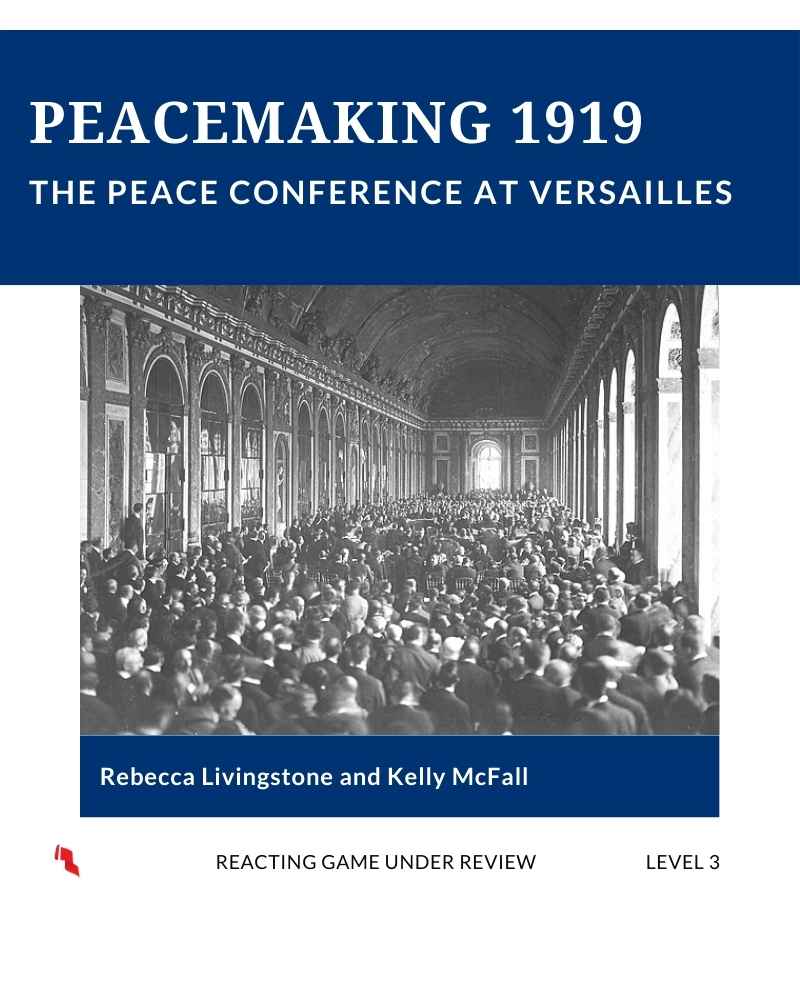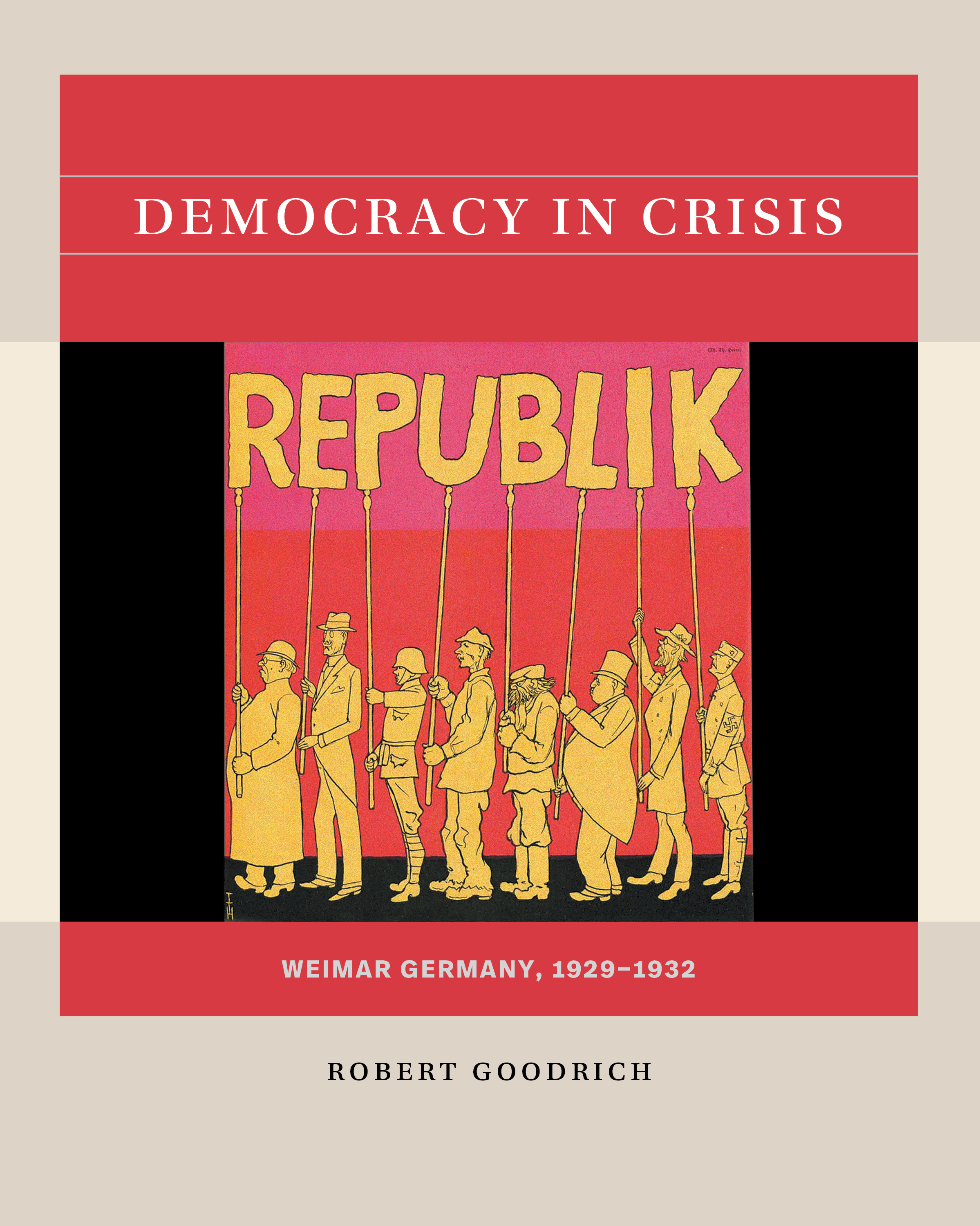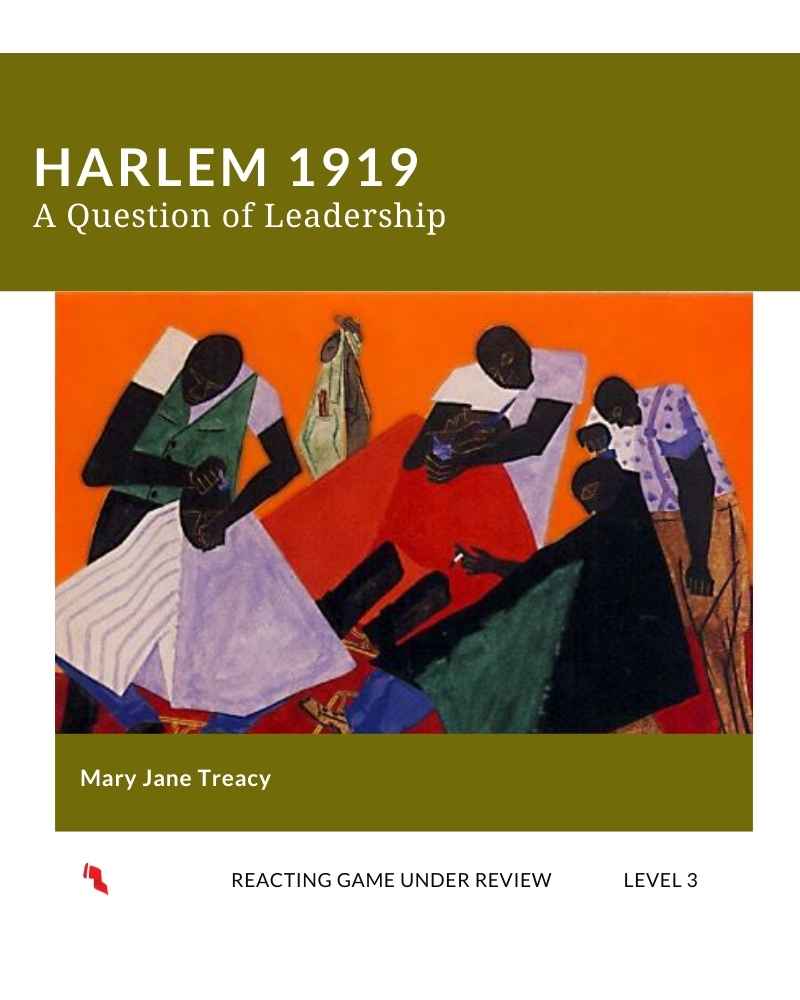 |
VERSAILLES 1919
Peacemaking, 1919: The Peace Conference at Versailles
by Rebecca Livingstone and Kelly McFall
 Play this game recently? | Set in Paris, 1919, Peacemaking places students in the complicated and politically fraught peace conference that will bring an end to the Great War. Students represent nations as they seek to bring about peace not only for the present, but also the future. Students will grapple with complex ideas about: peace, the League of Nations, and tensions about international cooperation and national sovereignty; just war, self-aggrandizing war, and acceptable conduct of war; national self-interest versus the greater good; collective security or the balance of power; self-determination, nationalism, democracy and imperialism; moral responsibility versus legal culpability in war; disarmament; the rights and treatment of minority populations; the rising fears about Bolshevism. For this game, students work primarily in topical subcommittees charged with recommending course of action to the Council of Five. This council comprised of the leaders of the Great Powers determine the final draft of the peace treaty, choosing to accept, amend, or reject the recommendations of their subordinates and/or insert their own conditions. The result will be a treaty by many hands, many visions, and many competing interests. The immediate question will be whether the treaty will be acceptable to the individual nations, particularly Germany. The long-term question will be whether or not the treaty brings about the peace its creators hoped for. This is a Level 3 game that is still under development but has been approved by the Reacting Editorial Board (REB) for general use. A detailed explanation of the editorial process and game levels can be found on our REB Page. |
Details
|
Using the Game
Class Size and Scalability Class Time
Assignments The assignments can be adjusted to fit the desired learning outcomes of your class. This game can include traditional paper/research/thesis-driven writing. Not all roles are required to give formal speeches. |
 GAME MATERIALS
GAME MATERIALS
Reacting Consortium members can download all game materials below. You will be asked to sign in before downloading.
Please Fill out the Permissions Request Form Before Using Peacemaking, 1919 in Your Class!
Gamebook All students need a Gamebook, which includes resources and historical content. Members can download the Gamebook, and provide it to students for free or at cost. | Instructor's Manual The Instructor's Manual includes guidance for assigning roles, presenting historical context, assignments, activities and discussion topics, and more. | Role Sheets Students also need a Role Sheet, which contains biographical information, suggestions for further reading, and role-specific info or assignments. |
Rebecca Livingstone is Department Chair of History and Professor of History at Simpson College. She is involved in the innovative, immersive pedagogy of Reacting to the Past, utilizing the historical role-playing simulations in her classes, authoring games of her own, and serving on the Board of the RTTP Game Development Conference. | Reacting and Related Titles
|
Kelly McFall
Kelly McFall is professor of history and chair of the humanities division at Newman University in Wichita, Kansas. Since 2013, he has run a popular podcast focusing on new books in genocide studies. In 2014, he won the inaugural Faculty of Distinction award from the Kansas Independent Colleges Association, recognizing his teaching excellence. He is a member of the Reacting to the Past editorial board. | Reacting and Related Titles
|
Reviews
"The game is not only scalable, it is also very flexible. The authors have made the sensible decision to focus the core game on specific debates having to do with the European settlement, but have created the possibility for expanding the game to include the Ottoman Empire and possibly other issues as well. I can also see that it would be very easy to control for the kinds of debates that take place simply by adjusting the non-faction characters in the game. I am also impressed by how neatly the authors have encapsulated these complex debates within the game and victory-objective structure. I also find the narrative very accessibly written; I can imagine my students finding that essay helpful and appealing." | "'Peacemaking' is an important addition to the Reacting library. While many games deal with global interactions and extra-national relationships, this is one of the few that I’m aware of to push students to think about international perspectives and relationships and the implications of global engagement. I would welcome the chance to use Peacemaking in my world history courses." |
Members can contact game authors directly if they have questions about using the game. We also invite instructors join our Facebook Faculty Lounge, where you'll find a wonderful community eager to help and answer questions.
|
|
|


